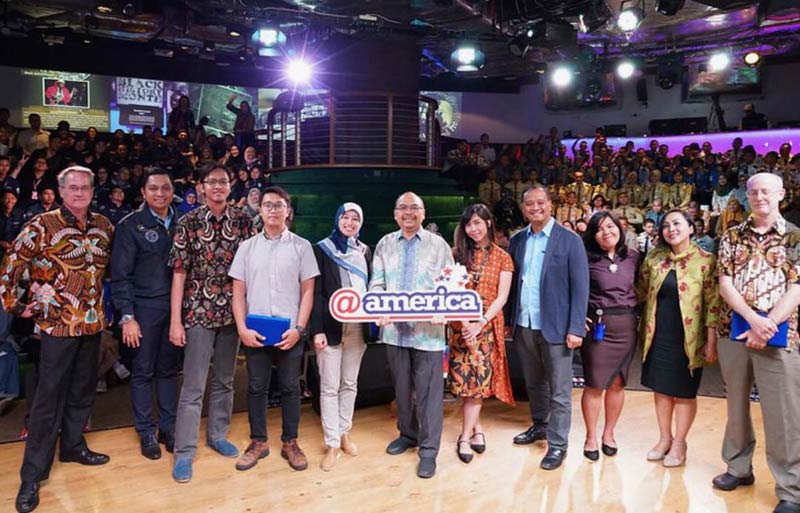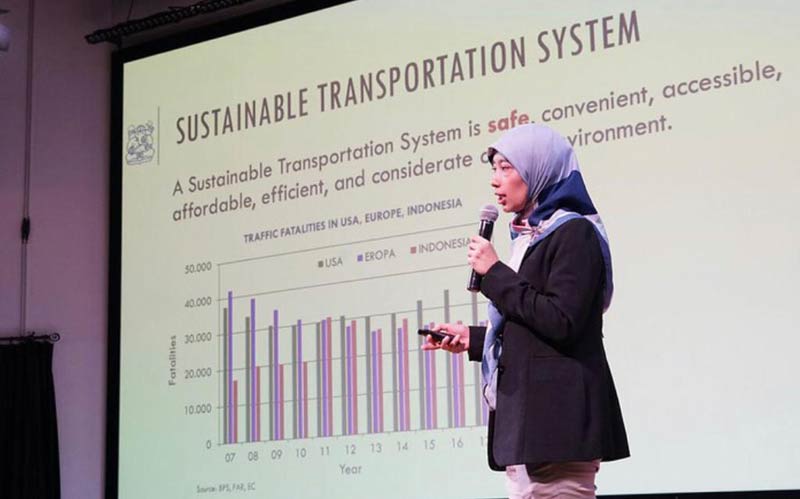Feature Updates
The Future of Transportation Through Electrical Vehicle
- May 7, 2019
- Category: News
Transportation is vital for people’s daily life. It is not only important for people’s mobility but also distribution of goods and services. The challenge faced by transportation sector also increasing, including traffic, energy crisis, and transportation safety. USAID Indonesia through Sustainable Higher Education Research Alliances (SHERA) supporting research collaboration between Indonesia and United States to conduct joint research on sustainable transportation technology.
SHERA is working with National Center for sustainable Transportation Technology (NCSTT) which consist of Institut Teknologi Bandung, Universitas Diponegoro, Universitas Sriwijawa, Universitas Lambung Mangkurat, Institut Teknologi Kalimantan, Universitas Sebelas Maret, Universitas Sam Ratulangi, and Massachusetts Institute of Technology. Dr. Eng. Bentang Arief Budiman and Dr. Annisa Jusuf , NCSTT’s researchers, shared some solutions for transportation challenges in USAID SHERA talk show “Transportation Technology: Solution for Mobility in Indonesia” 30 April 2019 at @america, Pacific Place Jakarta.

Dr. Budiman explained the importance of sustainable transportation technology. The escalation demand of fossil fuels transportation should be overcome by innovative transportation system. “No one can hold back the transport revolution, especially in urban cities,” he said. Electric based vehicle is expected to be solution. Currently, NCSTT is developing various electrical based vehicle including “electric trike”, “electric bus”, and “light rapid transit”. Virtual product development in automotive industry will become trend in the future. In the product development, the use of computation and simulation can reduce time consumption and cost.

Dr. Jusuf explained transportation safety issue based on the data. Based on NCSTT’s research, transportation safety is essential. The best vehicle is the one who can absorb energy during accident and protect the passengers from fatality. “Your car is built to crumple!” said Dr. Jusuf. Crumple zone absorb accident impact to help reduce personal injury. Based on NCSTT’s data in 2017, the most accidents happened to motorcycle, which attained 110.000 incidents. Motor vehicle volume on the road and motorcyclist’s behavior are often to blame for higher traffic accidents in Indonesia. Dr. Jusuf explained that there are at least 8 common driver bad habits on the road, including: not slow down at yellow traffic lights, driving against traffic flow, not staying left to turn left, not stop at pedestrian crossing, stop on the road side, speeding, fatigue driving, and distracted driving.
NCSTT also collaborate with PT. Transportasi Jakarta (Transjakarta) for the development of electrical bus. Transjakarta’s representatives, Daud Joseph – Operational Director agreed on the importance of public transportation who accommodate public needs. “Citizens deserves safe, convenient, and affordable public transportation,” said Joseph. The increasing needs of Jakarta’s mobility encourage Transjakarta to collaborate with NCSTT. They are developing the electrical based buses who will be finished in the next 5 months. The trial will be conduct in November 2019.
